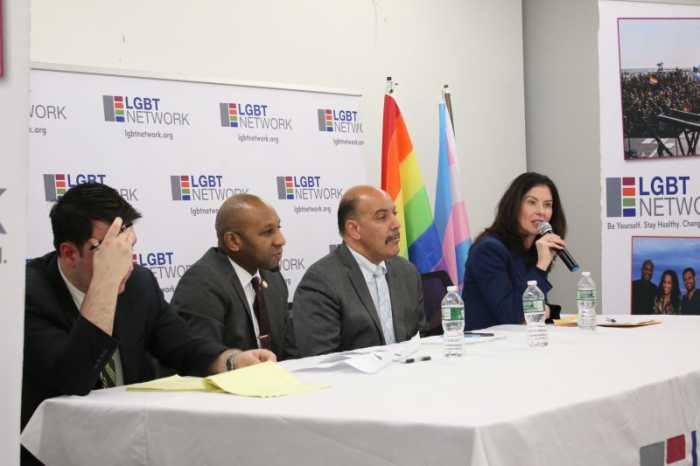Sanders Launches 2nd Annual Carribbean Carnival In The Rockaways
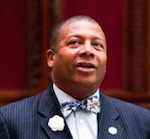
State Sen. James Sanders Jr. (D-Queens) over the weekend officially launched the 2nd Annual Caribbean Carnival in the Rockaways.
Crowds of people, many representing the Caribbean, gathered Saturday at the Beach 20th Street Pedestrian Plaza where some dressed in costume celebrated the coming together with Caribbean food, music and dance.
“Welcome to the Rockaways and welcome to the Carnival,” said Sanders who donned a black and gold-feathered headdress during the kick off and press conference. “We are going to have some fun. We are going to be celebrating all of the Rockaways, but we will be particularly highlighting the contributions of the Caribbean community in America.”
Last year’s Caribbean Carnival in the Rockaways drew 5,000 people and even more are expected to participate this year. Residents and costumed masqueraders joined Sanders in a mini-march down Beach 20th Street as Caribbean music played in the background.
The Senator is collaborating with the West Indian American Day Carnival Association (WIADCA), Rockaway Development Revitalization Corporation (RDRC), NYC Parks Department and ENJ Productions to create a safe and family-friendly event.
The Caribbean Carnival in the Rockaways will take place from 11 a.m. to 8 p.m., Saturday, August 25, kicking off at Beach 59th Street and Arverne Boulevard. It will feature a parade of floats, steel pan bands, moko jumbies, and masqueraders and culminate with live performances near the beach at 94th Street.
For general information, to join the committee or to participate in Carnival contact Senator Sanders’s office at 718-523-3069.
Queens Pols Hail $400 Million Plan For Healthier Jamaica Bay
New York City Department of Environmental Protection (DEP) Commissioner Vincent Sapienza yesterday joined with Queens elected officials, community leaders, and environmental advocates to announce a $400 million plan to further improve the ecological health of Jamaica Bay.
Jamaica Bay is a 31-square-mile water body with a broader watershed of approximately 142 square miles, including portions of Brooklyn, Queens, and Nassau County. It is a diverse ecological resource that supports multiple habitats, including open water, salt marshes, grasslands, coastal woodlands, maritime shrublands, and brackish and freshwater wetlands. These habitats support 91 fish species, 325 species of birds, and many reptile, amphibian, and small mammal species. In fact, Jamaica Bay is a protected United States Wildlife Refuge and is part of the larger Gateway National Recreation Area.
The plan includes an array of waterbody improvement projects including 50 acres of wetland restoration, seven acres of ribbed mussel installations, and environmental dredging, all of which will result in a healthier Jamaica Bay.
The projects will also deliver economic, social and ancillary environmental benefits, including healthier air and lower summer temperatures due to the addition of a significant number of new trees and plants.
The plan is being submitted to the New York State Department of Environmental Conservation today and if approved, planning and design could begin as soon as 2019.
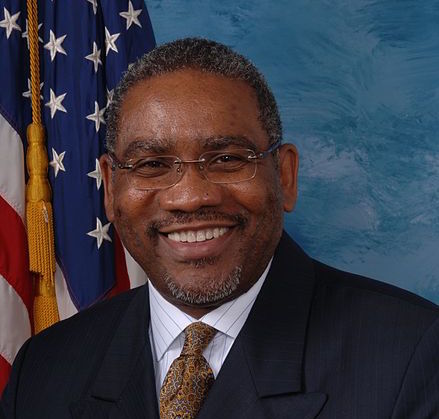
“The health and resiliency of Jamaica Bay isn’t only an environmental consideration, it is also vital for the economic success of southeast Queens,” said U.S. Rep. Gregory W. Meeks (D). ”The $400 million will provide the resources for extensive wetland restoration, dredging and ribbed mussel installation. I commend DEP for diligently working with the community and elected officials to identify what projects are critical for Jamaica Bay, and investing accordingly.”
“Jamaica Bay’s location and abundance of food resources makes it an important home for fish, wildlife and plants – all things we need to care for and protect,” said State Senator James Sanders Jr. (D-Queens). “I fully support DEP for making this important financial investment to improve the ecological health of Jamaica Bay.”
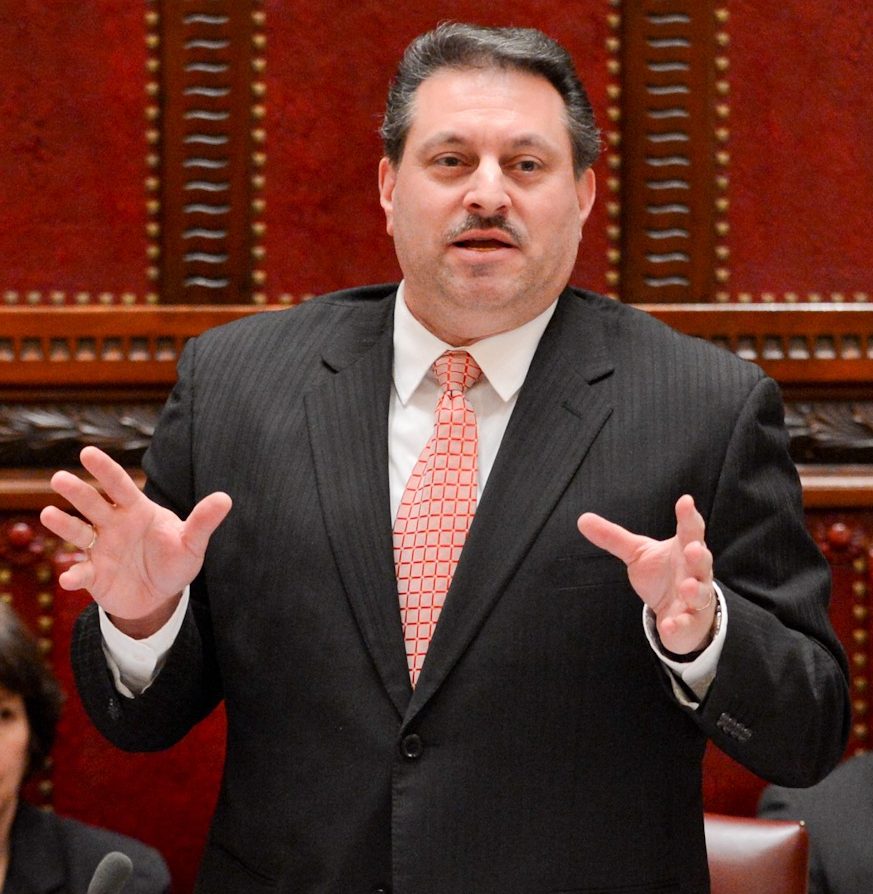

“This additional $400 million investment into Jamaica Bay is yet another step forward in making the bay healthier for the surrounding communities and the overall ecological health of New York City,” said State Senator Joseph P. Addabbo, Jr., a member of the New York Senate Environmental Conservation Committee. “With this funding, DEP will be able to begin expanding several green infrastructure projects as well as restoring many acres of wetlands. I would like to thank DEP for their continued efforts to improve the health of Jamaica Bay through these various projects.”

“I am so excited to stand here today with DEP Commissioner Vincent Sapienza, and my colleagues in government in announcing a $400 million dollar improvement plan for Jamaica Bay,” Assembly Member Stacey Pheffer Amato (D-Broad Channel) said. “Few parts of the country know how important taking care of the Earth is as well as we do. There’s a balance, a true relationship, between the people of Jamaica Bay and the Bay itself. Investing in this ecological jewel, will not only show off the natural beauty of our water and its ecosystem, but will create the next generation of environmentalists to preserve and protect it. Thanks to everyone who’s been working so hard to protect our bay!”
“Global warming is a reality and investing in our environment is more important than ever,” said Assembly Member Alicia Hyndman. “With this $400 million project, DEP will transform Jamaica Bay so that our communities have access to clean air and water. This is truly a community organized effort that will build a better Jamaica Bay for all.”
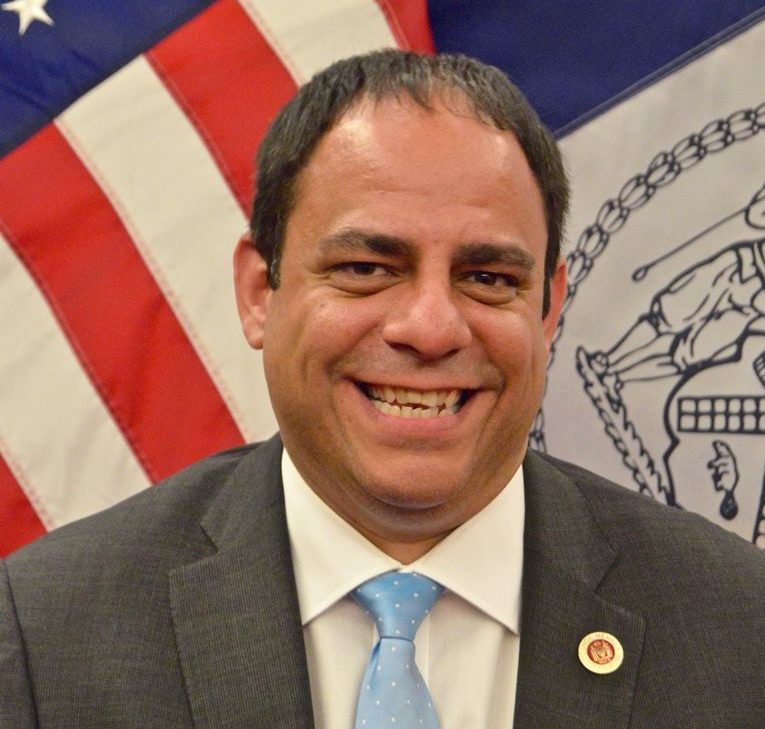

“Jamaica Bay is a national treasure, and deserves a steady flow of resources to preserve its ecology,” said City Council Member Costa Constantinides, Chair of the City Council Committee of Environmental Protection. “I applaud DEP’s effort to make the Bay a cleaner and more sustainable place for New York City. We should constantly look for new ways to improve the health of our waterways, and our own well-being in the process.”
“While we work to reduce our carbon footprint, we must also do everything in our power to preserve and revitalize our wetlands that were under siege during the industrialization of our city,” said City Council Member Donovan Richards. “I welcome the dedication of another $400 million to filter out toxins and preserve the wildlife in Jamaica Bay. I’d like to thank DEP Commissioner Sapienza for his efforts to protect our watersheds.”
Dromm Co-Sponsors Legislation to Increase Transparency, Accountability in Funding to City Schools
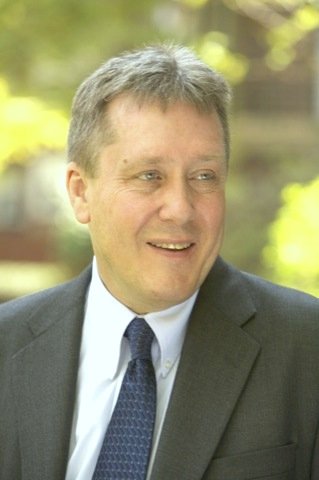
City Council Member Daniel Dromm (D-East Elmhurst, Elmhurst, Jackson Heights) recently co-sponsored legislation that would require the city to issue public reports centralizing all data about the allocation of funding to each of the city’s schools, including specific reporting on the calculation and distribution of Fair Student Funding (FSF).
FSF is a critical part of each school’s budget, affording school administrators a beneficial flexibility to address challenges that are specific to their school’s student population, including the hiring of additional social workers and guidance counselors, the creation or enhancement of cultural arts enrichment programs, and the implementation of other integral support services.
Other sponsores of the bill was City Council Members Mark Treyger (D-Brooklyn) and Ritchie Torres (D-Bronx).
Should Int. 1040 become law, the city would be required to publicly post online and submit reports to the council thrice annually detailing all budget allocations for every school citywide, including the calculated FSF formula for each school and the percentage of that calculation that each school actually receives. Under the specifications of the legislation, the city would be mandated to submit reports in a searchable and sortable format.
Currently, some school budget data is made publicly available, but the city does not provide such data in a centralized format. While it is possible to find a particular school’s FSF allocation, that data can only be retrieved on an individual school basis. The measure would increase accessibility and transparency to the data, making it easier to analyze the data for patterns and trends that may reveal inequities in the way funding is being distributed to schools across the city.
“This bill will ensure that FSF allocations are made fairly and equitably,” said Dromm. “FSF is a major win for our schools, and this bill enhances it by bringing transparency to the process. I thank Education Chair Treyger for leading this effort. As a former NYC public school teacher, I am pleased to work alongside him and Council Member Torres to bolster public education in our city.”




